Los Angeles-based lesbian funny lady Cameron Esposito, made her network debut on CBS' Craig Ferguson this week (with another upstart comedian, Jay Leno, sharing guest duties). Here, the 31-year-old talks about hecklers, jean jackets, how she's like Spider-Man, and what it's like being a lesbian stand-up comedian in the post-Ellen world.
OUT: Tell us about where you're from and what you're doing now.
Cameron Esposito: I'm a comedian, mostly stand-up, and I'm originally from the suburbs of Chicago. I grew up in a very supportive but insanely over-the-top Italian family. Being a gay person where I'm from was kind of confusing. I never really saw any gay people and certainly didn't know any gay people who were out. I just thought I was straight but that I didn't want to kiss anybody. I thought that's how everybody felt.
Then I went to a Catholic college in Boston and came out there, which was a slow process and really not that long ago. Coming out, initially, felt like I wasn't going to be okay, like I was giving up some kind of normalcy, or happiness and a certain life. But you can't stop being who you are.
How does that translate into your work now?
I started doing improv in college and then professionally. I would do like six shows a week, which is a lot. I loved my friends that I found there, but I still was not THAT out. The closet door felt very very thick and heavy. With improv you have to agree with everyone on stage and work together, but with stand-up, it's your own time. I could tell people exactly who I was. I was coming out in a way that's very controlled and very positive, and I really needed that at the time, when I was 22.
Being a stand-up comedian puts you in an incredibly vulnerable position. It turns you into a lightning rod for both positivity and negativity, a lot of times involving your personal life and sexuality. What compels you to do keep doing it? It looks frightening.
I love my job. It's never boring. I love talking to the audience. I don't usually slam them, unless I feel challenged, heckled, or the audience is rude or pervy, which happens a lot to female comics. Like, I'll be talking about Blockbuster and someone will shout about porn. But the most exhausting thing, outside of my stand-up, in terms of videos or online things, is that you can't read the comments.
In person people will rarely say something to me that I can't rebuff. Most hecklers don't realize this is my job; they've been waiting to say their bit for 10 minutes, whereas this is my entire life, so it's like throwing a whiffle ball at a major leaguer. I also once had a guy heckler yell out that he thought two men together were gross, but he would love to sleep with me and my girlfriend. That's sort of like the most exhausting, boring thing you could say.
Being an out lesbian and a woman is integral to your act. How do you use them?
I talk about being a lesbian because it's my life, the things that are true for me. Comics are all just trying to get at truth. And it was hard for me to come out. I had a really hard time with my parents. They're very Catholic and it was really bad between us for a bunch of years. And now they understand that I am the person that I am and that I am happy.
Being onstage with a platform is a very powerful thing, In a Spider-Man-y kind of way: With great power comes great responsibility. If there's something I can do that makes it easier for us all, I'm going to try to do that. I also try to remember that the people I'm talking to in the audience are people that get to vote on my rights, and they might not know a lesbian, and I can maybe change an opinion. With humor, people relax enough to not know that their minds are being changed. It's the most fun education you'll ever pay for.
Sometimes gay comics play to stereotypes or near minstrelsy performing for a more normative audience. Can you speak to that?
I feel like we're in a new wave of comedy in general, one informed by Alt comedy. We've moved on from the 80s and 90s-era brick wall comedy with stand-up spotlight, like Seinfeld. It's not strict "set-up the punchline" jokes. It's become more personal, almost like a story. Gay comics back then were performing, partially just to survive, but they were also performing for other gay folks that lived in gay neighborhoods. Or they were on TV shows where they had to be super gay as part of their job or character.
The gay experience now is very different and broader, or it's more a queer experience. But I think stand-up comedy has evolved to a different place that is more conversational and intimate. And most of my bookings are mostly mixed audience. And I like that. It keeps me more honest. You have to talk about things that make sense to everybody.
With webseries and social media, there is more a plurality of voices and maybe harder time to get recognized in the crowd, how do you see this change?
It's a really exciting to be doing comedy. Along with comics being more personal, you can be more specific. You're not vying for one spot on The Tonight Show, and that was what you HAD to do and then hope for a sitcom. Now it's alot easier to find YOUR people. That really wasn't possible before. I have 2 different podcasts each week where thousands of people hear what I say and I don't even have to leave LA. This lowers the stakes. It's not about big break moment. You're trying to have a consistent and fulfilling career. There is a sustainable element to it that if something fails, hat wasn't your one shot. You can control it a bit more.
But being featured on a network show like Craig Ferguson's, which has millions of viewers, is still a big deal. What does that mean to a comic at your level?
It's incredibly validating, and it's a way to increase the size of your audience. But for this in particular I was mostly thinking about Craig and Jay Leno, because the guests don't always stay to watch the comics. You always are playing to the other comics, but rarely are they Jay Leno and Craig Ferguson. Man, does it matter when comics laugh at you.
During Ellen's first appearance on Carson, in 1986, he called her over to chat and they talked about how it's harder from women comediennes. Is that still the case?
I think its still different for women in stand-up. There are less women doing it, so less women think about doing it, which is a cycle that perpetuates itself. So then as an audience member you expect to see a guy. It's still something we're getting used to seeing.
Well, I'm sure you being up there as well speaks to some level of progress?
I got up there in a jean jacket and Jay Leno said "Lesbians rock," so that sort of speaks for itself.
Yes, your look. It plays a part in your bit. Please explain.
I got this hair cut about 3 years ago. It sounds like this silly little thing, but when I got it I thought "Okay this feels a lot better." I'm a lesbian, and happy about that. Having something that signifies that to the world is very powerful for me. As a lesbian performer, it was hard for me to figure out how to dress myself. I wanted to look respectful and professional. I wanted to wear something that showed I was taking the show seriously and myself seriously, but be myself at the same time. So I would wear boots and started wearing a jean jacket. It feels like a suit, that jacket. It's punk rock and more indicative of my culture. Haircuts and jean jackets, they're a social signifier about who I am and my comfort level with that and take myself seriously enough to have a look. There is a little bit of a queering of Andrew Dice Clay and David Bowie.
You grew up with little idea of what life as an out person was possible. What would you say to someone who is that same position now?
If my whole job, if everything that I'm doing on stage professionally is any indication, then it's going to be okay. The coming out and the fear before coming out is the hardest part, but then you get to figure out who you are and who loves you. Like what I said before, and this applies: Don't read the comments. But look to your friends and the people next to you and see how they respond, and more often than not they love you.
Cameron will be touring this fall with comedian Anthony Jeselnik and her writing and work can be found at cameronesposito.com. Also, here is footage of Ellen DeGeneres' first appearance on The Tonight Show, an appearance referenced above.
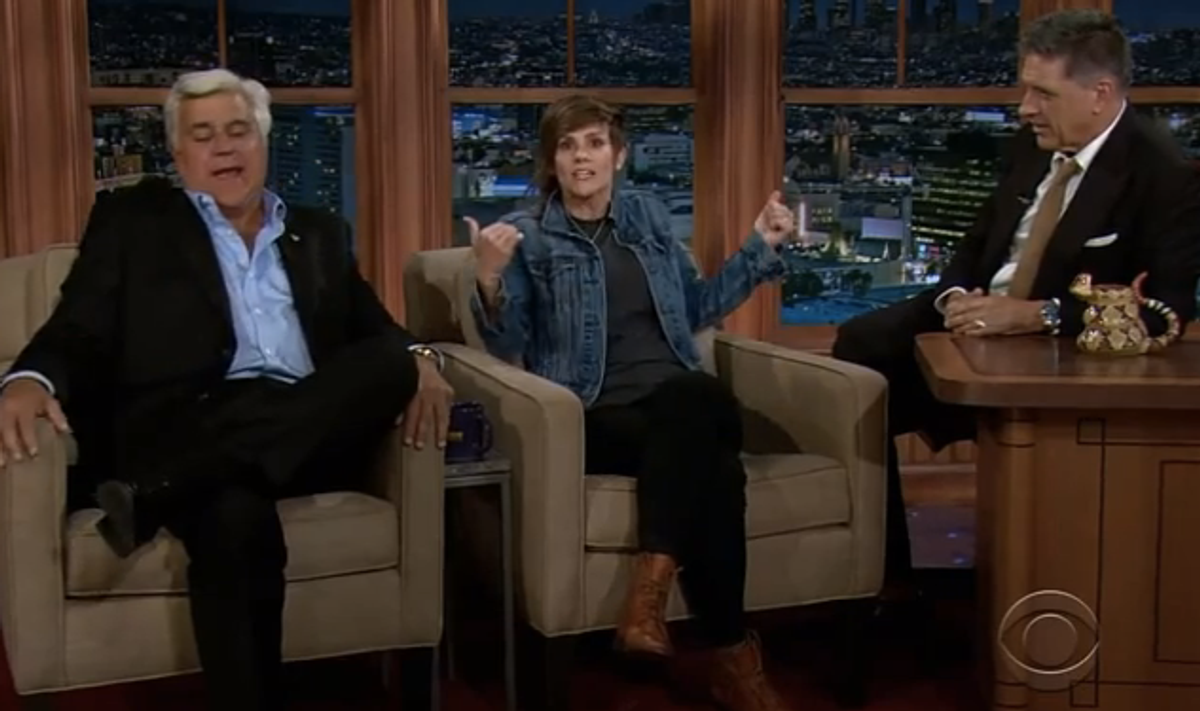

















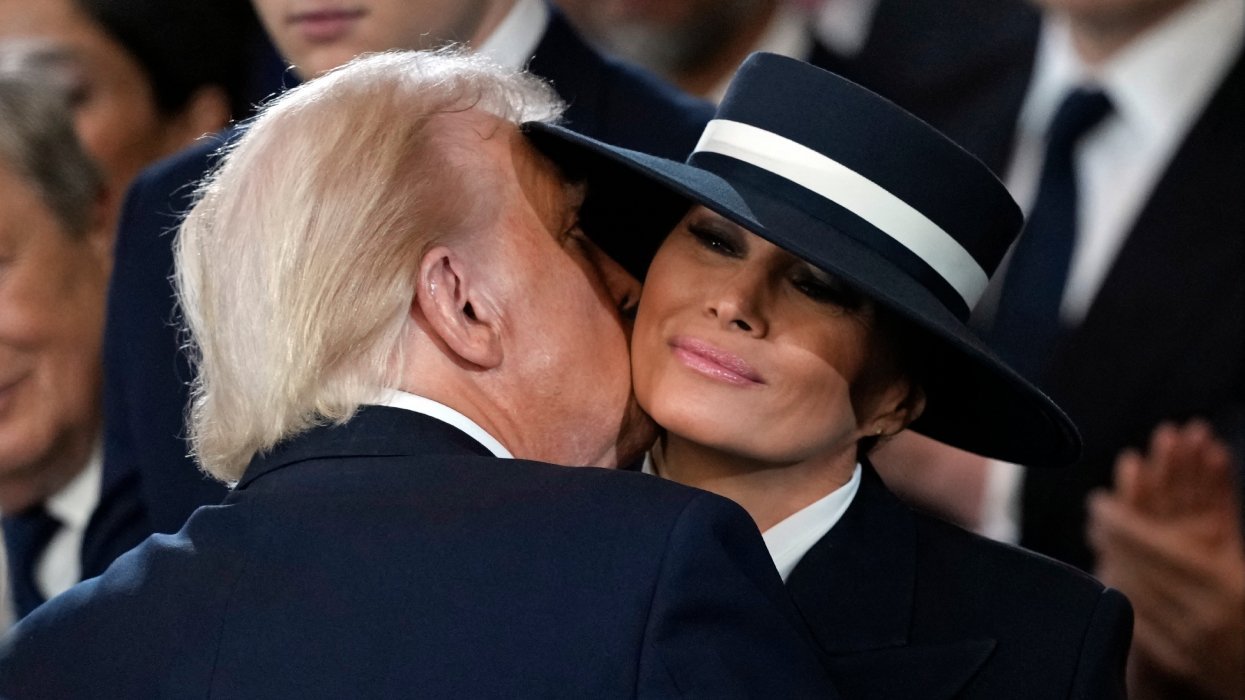


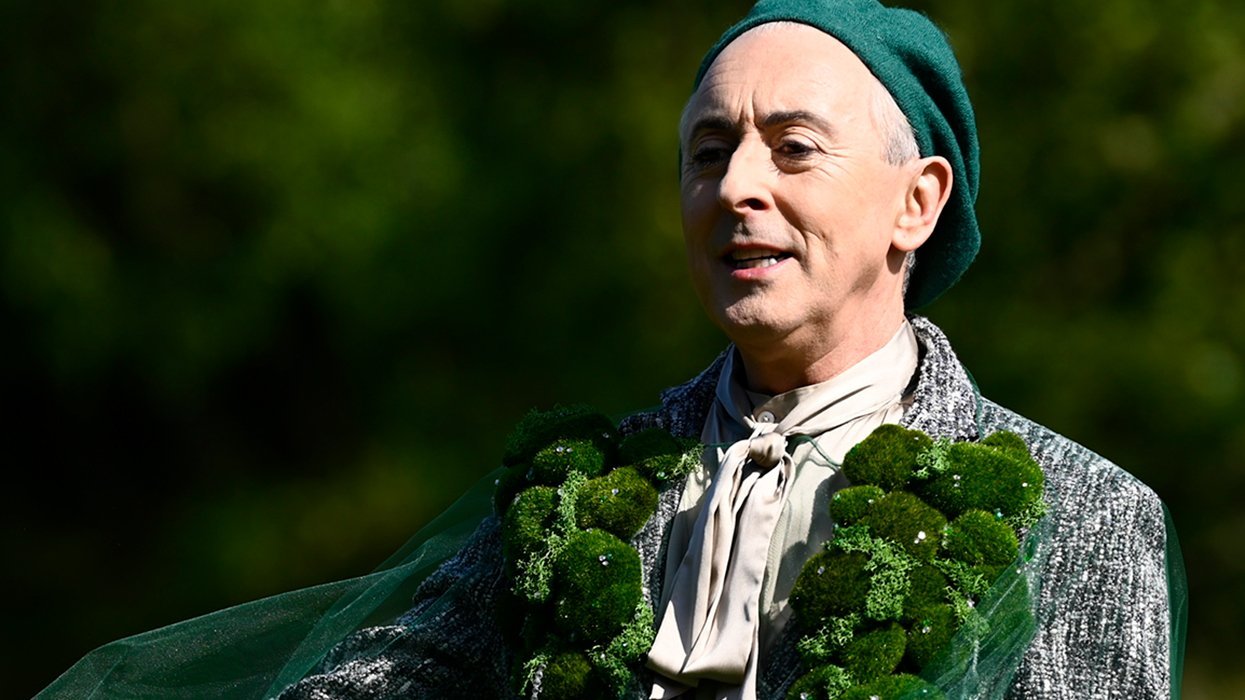
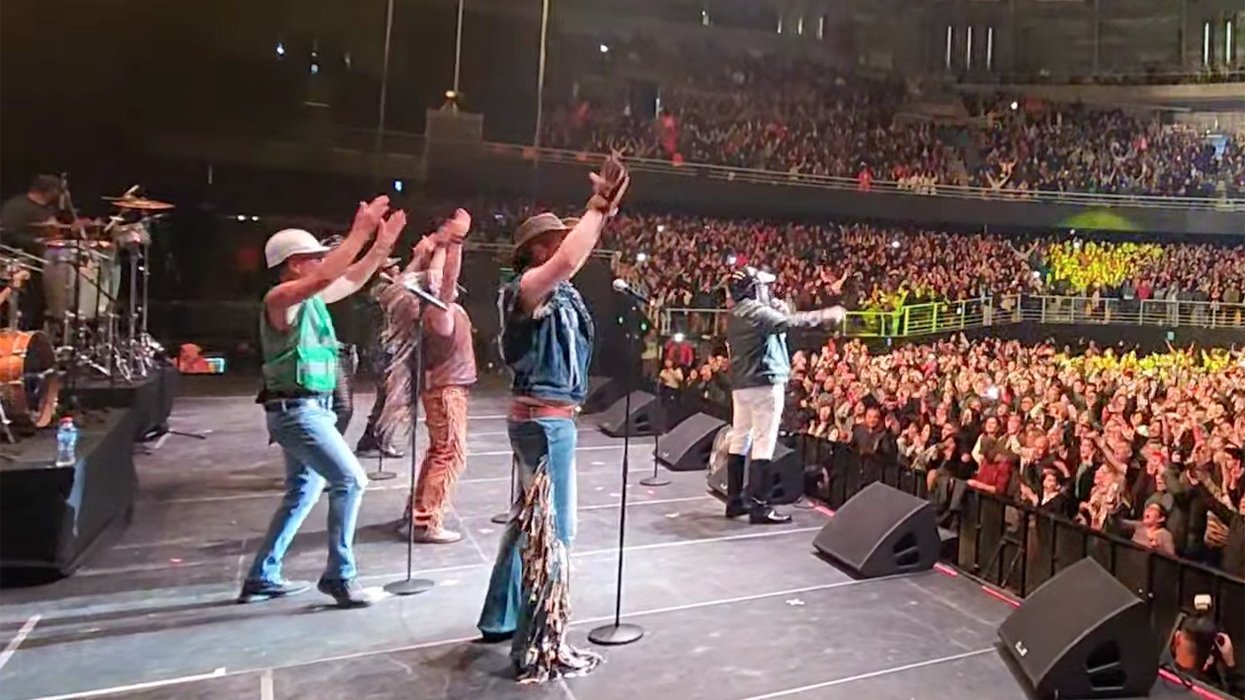

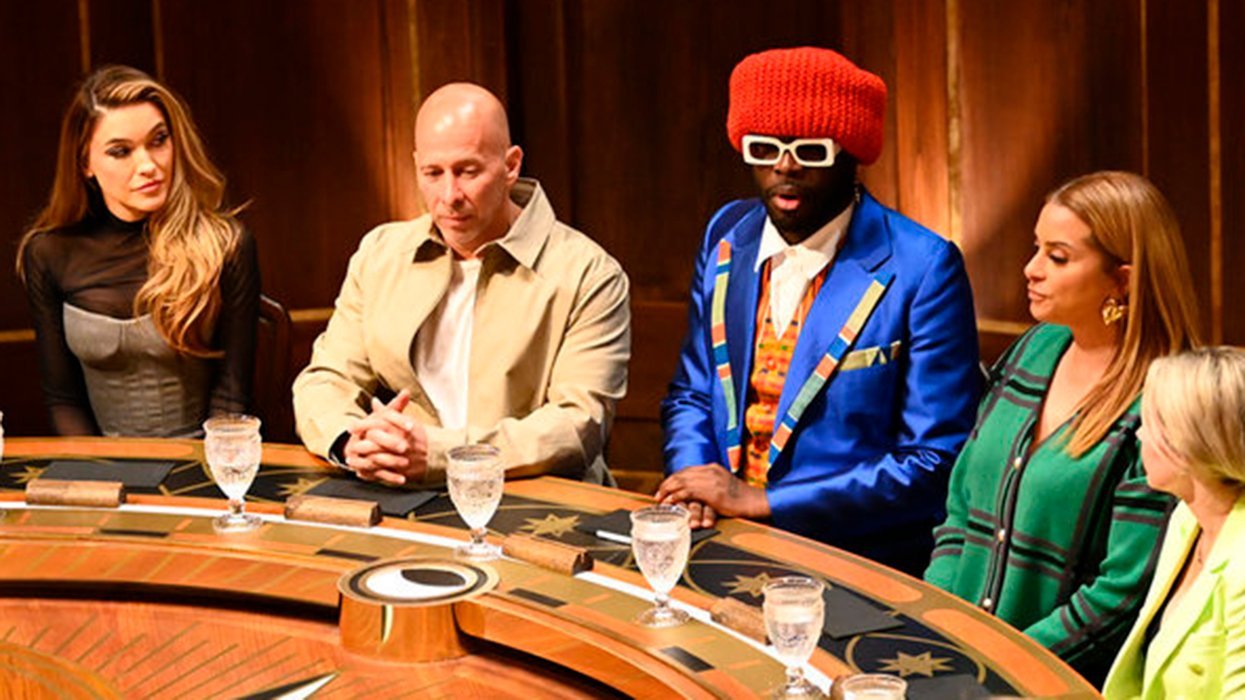
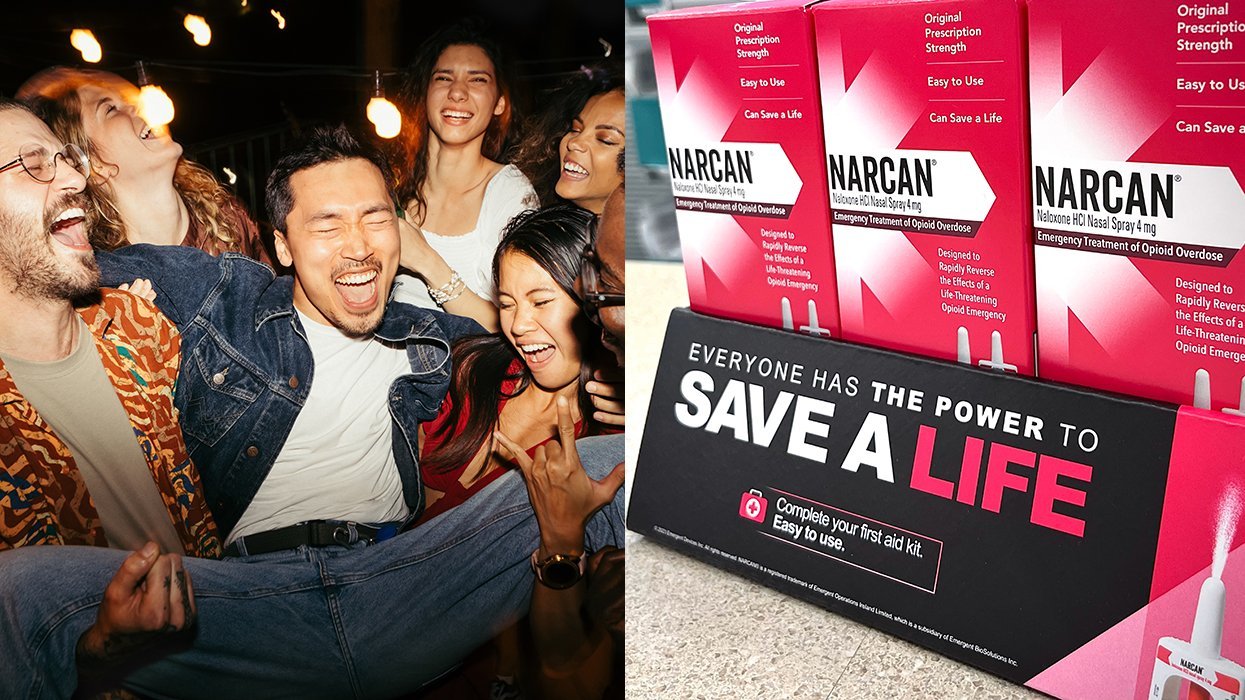
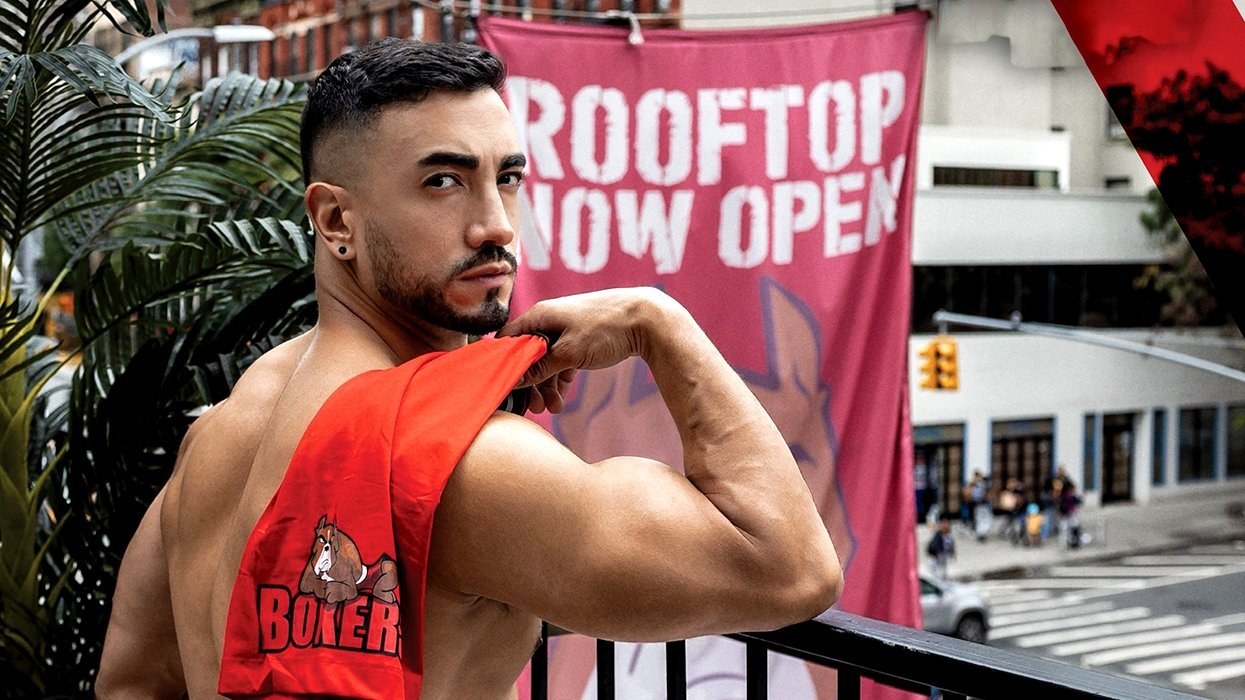
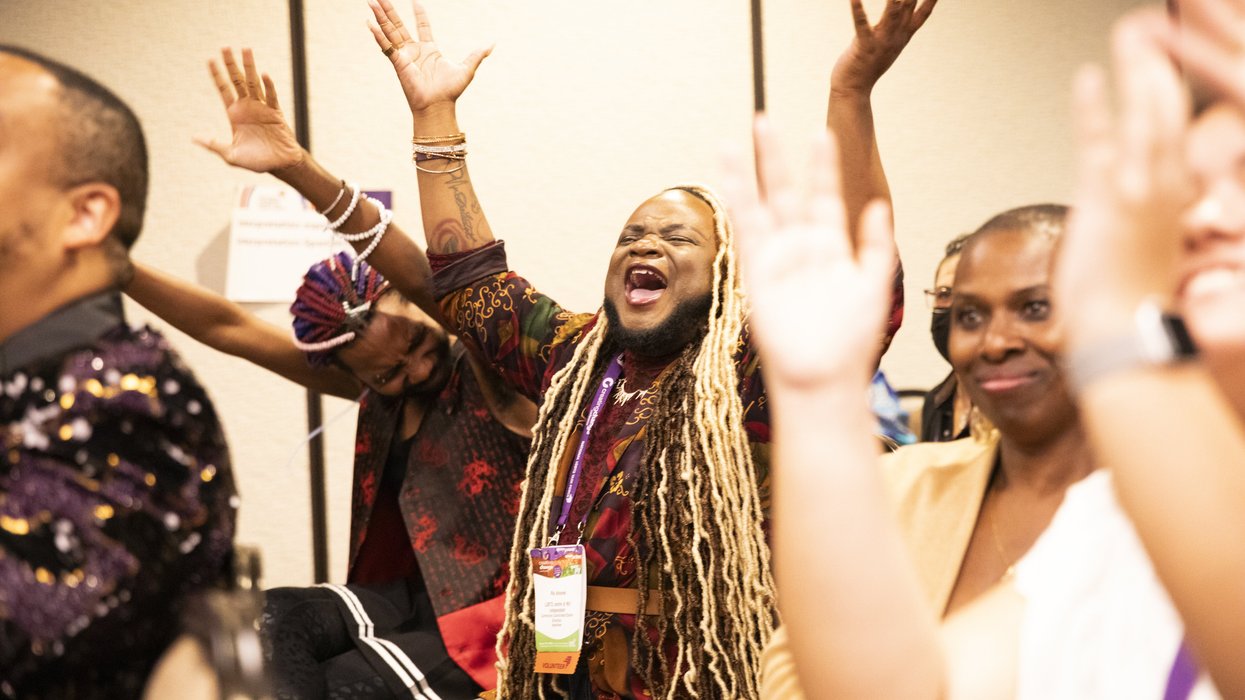
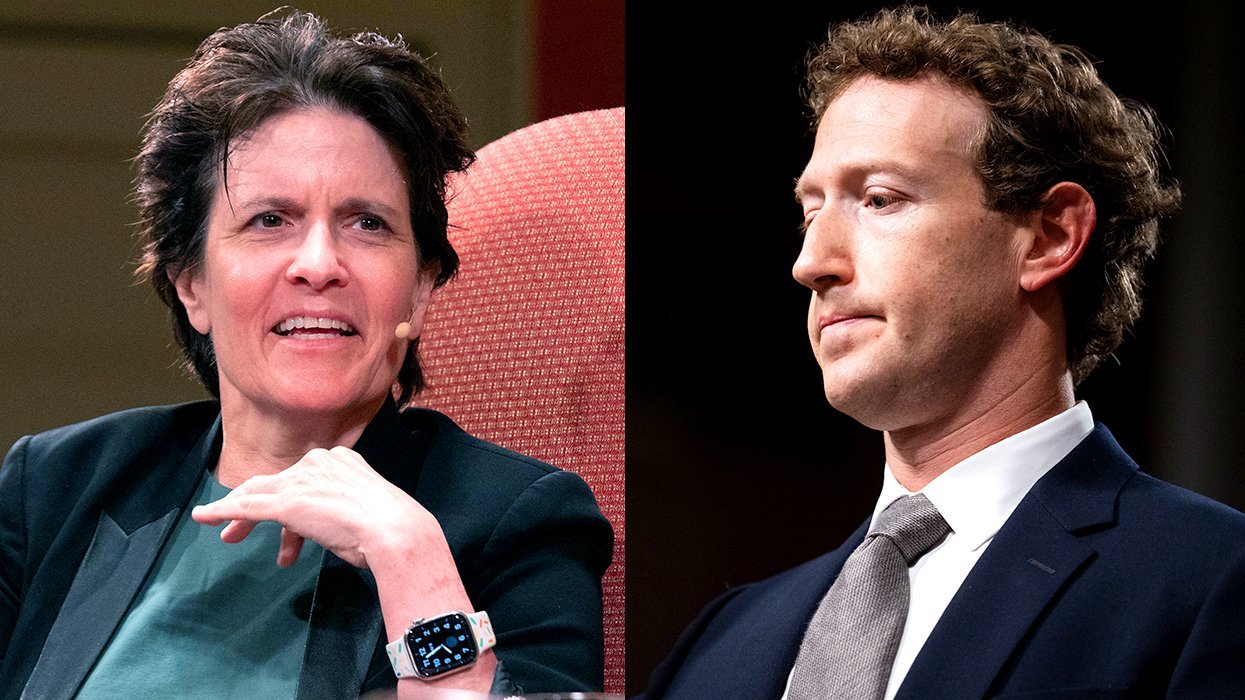
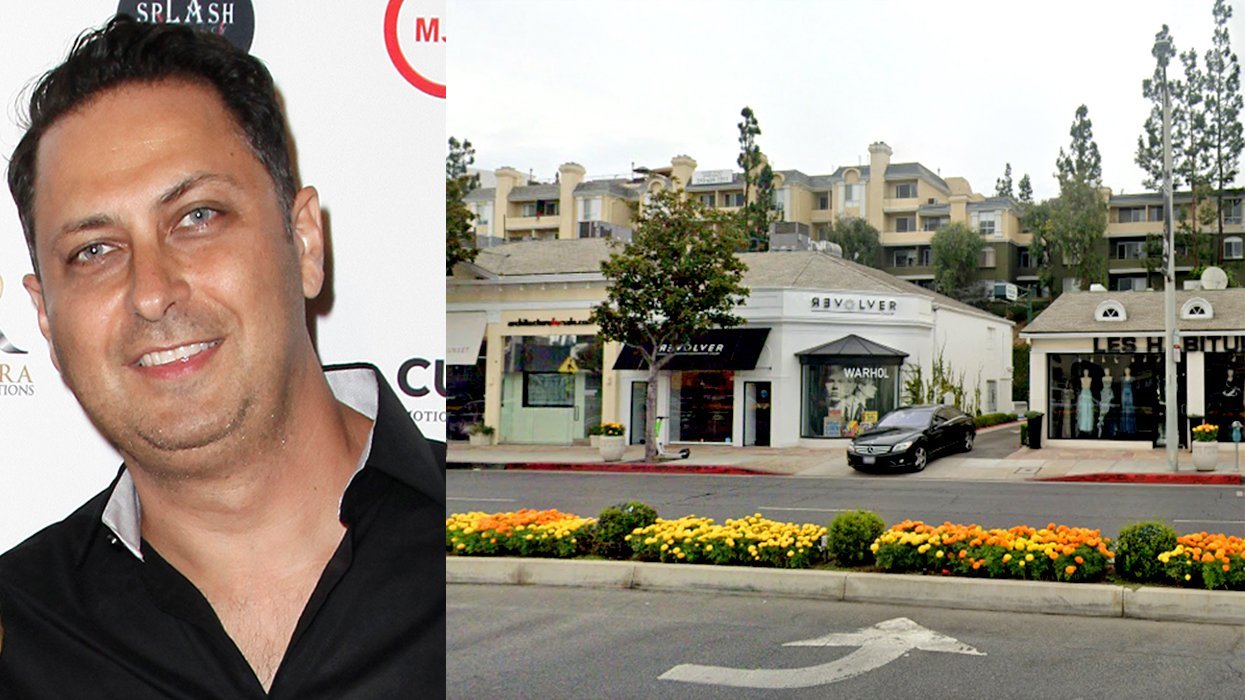
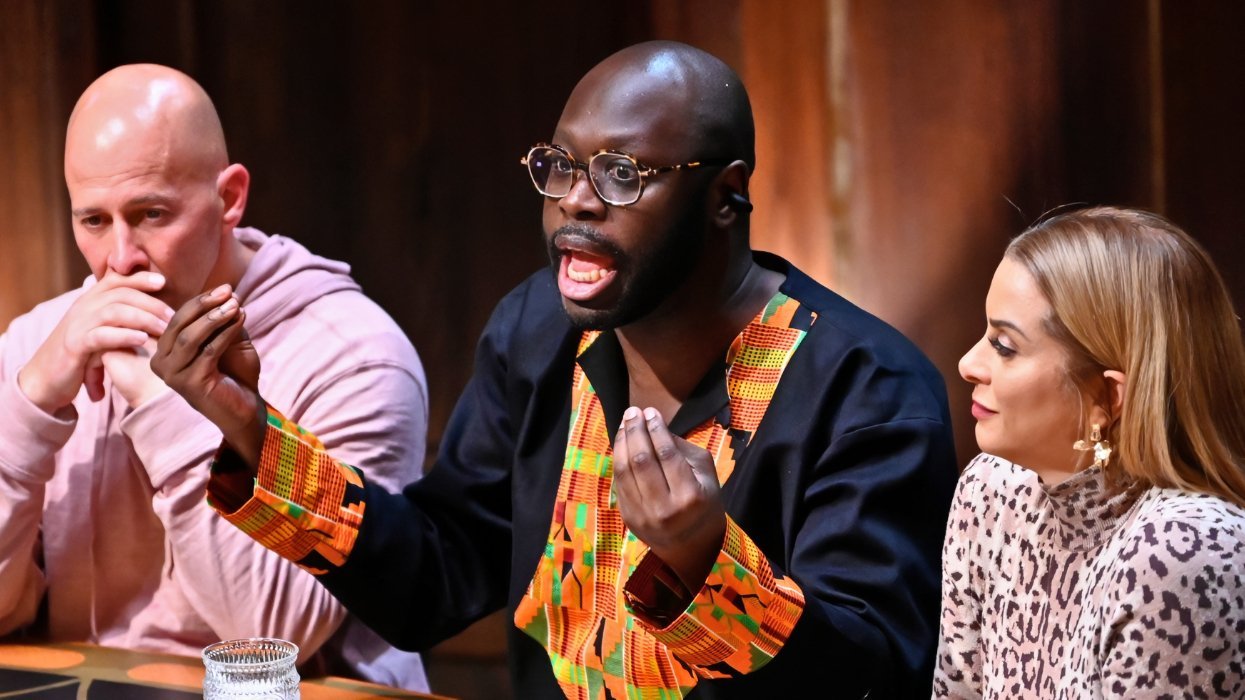
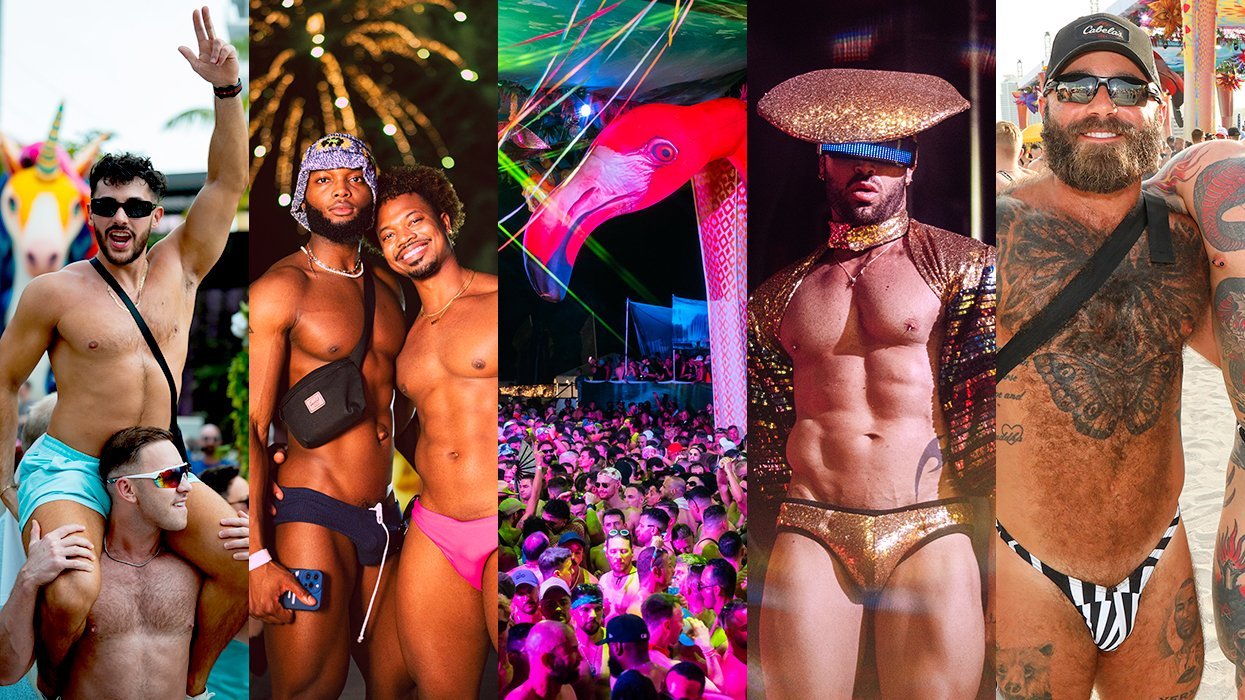

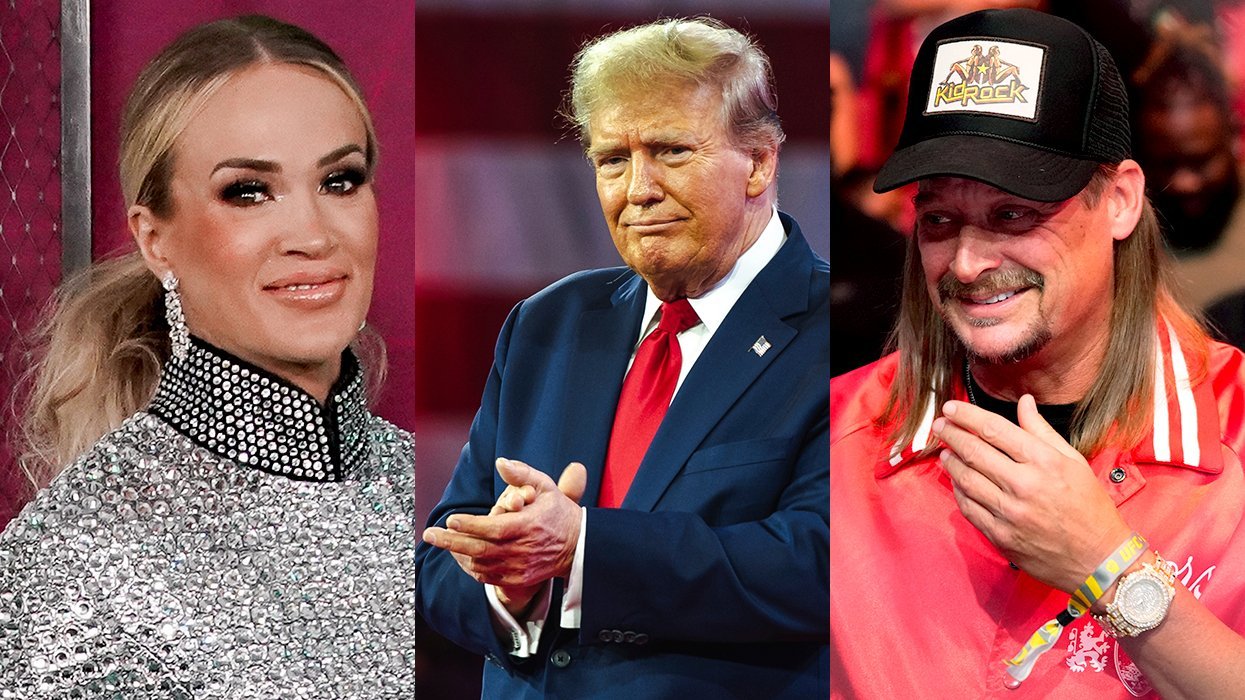
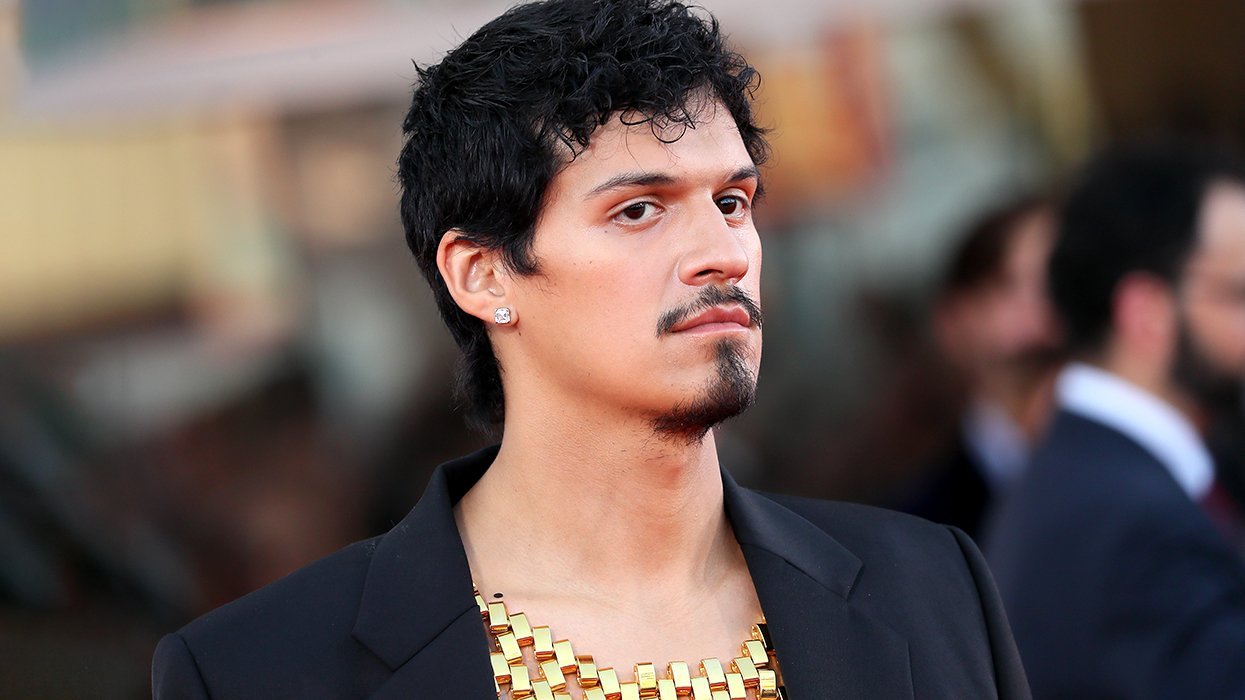




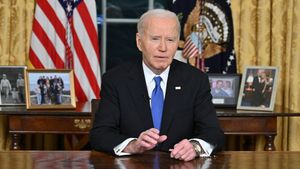







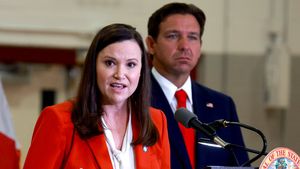


























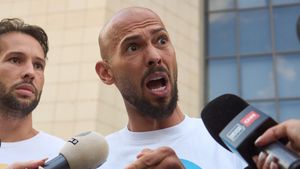






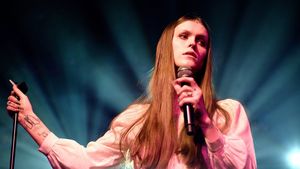


Beware of the Straightors: 'The Traitors' bros vs. the women and gays